Revisited am 7. April: Archäologie CCXLXIII : Abel Meeropol und Billie Holiday - "Strange Fruit". Geschichte eines Liedes - A National Pattern
... aus Anlass des 100. Geburtstags von Billie Holiday: Lady Day - Das Leben der Billie Holiday. Von Grace Yoon und Alfred Koch. Deutschlandfunk. Hörbefehl!
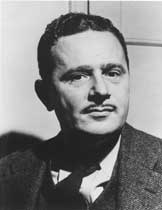
The Strange Story Of The Man Behind 'Strange Fruit' (npr):
"Strange Fruit" was written by the teacher Abel Meeropol as a poem.
Abel Meeropol (February 10, 1903 - October 30, 1986) was an American writer, teacher and song-writer, best known under his pseudonym Lewis Allan. He was the writer of countless poems and songs, including the Frank Sinatra and Josh White hit "The House I Live In" (*) and the libretto of Robert Kurka's opera "The Good Soldier Schweik". Later, he and his wife Anne adopted Julius and Ethel Rosenberg's two sons, Michael and Robert, after their parents' executions.
In the late 1930s Meeropol "was very disturbed at the continuation of racism in America, and seeing a photograph of a lynching sort of put him over the edge."

On Aug. 7, 1930, Lawrence Beitler took what would become the most iconic photograph of lynching in America. Vgl. auch Rare Historical Photos ... And the story behind them…
Meeropol once said the photograph "haunted" him "for days." So he wrote a poem about it, which was first published in the Marxist publication The New Masses. An amateur composer, Meeropol also set his words to music. He played it for a New York club owner — who ultimately gave it to Billie Holiday.
When Holiday decided to sing "Strange Fruit," the song reached millions of people. While the lyrics never mention lynching, the metaphor is painfully clear:
Southern trees bear strange fruit,
Blood on the leaves and blood at the root,
Black bodies swinging in the southern breeze,
Strange fruit hanging from the poplar trees.
Pastoral scene of the gallant south,
The bulging eyes and the twisted mouth,
Scent of magnolias, sweet and fresh,
Then the sudden smell of burning flesh.
Here is fruit for the crows to pluck,
For the rain to gather, for the wind to suck,
For the sun to rot, for the trees to drop,
Here is a strange and bitter crop.
Und hier die Hommage von Beth Hart und Joe Bonamassa, different from the Billie Holiday rendition, but also bitter and desperate ...
Und hier theTribute to Billie Holiday - Ein Abend mit Cassandra Wilson ( Arte Concert - bis 12/07/2015 ) Seh- und Hörbefehl!!
Ein phantastisches Konzert mit unglaublich guten Musikern, - über die Band findet sich leider nirgendwo eine Information ... Im Übrigen geht Cassandra Wilsons Interpretation von Strange Fruit auf ihrem neuen Album Coming Forth by Day noch anders unter die Haut als Billies und Beths. Diese Frau ist einfach überwältigend!
View on YouTube
"Du kannst nicht drogenabhängig sein und dann einfach so diese Musik erschaffen", sagt Cassandra Wilson über Billie Holiday, die vielleicht bedeutendste und ungebrochen populäre Jazz-Sängerin des 20. Jahrhunderts. "Irgendwie existiert diese Vorstellung, dass Leute wie Holiday rein zufällig zur Musik kamen und es einfach so aus ihnen rausfließt. Ich aber glaube das nicht. Es braucht eine Menge Disziplin." Wilsons Ärger gilt der stereotypen Zeichnung von Jazz-Sängern, die - im Gegensatz zu Instrumentalisten - oft als Randfiguren der Geschichte betrachtet werden. Dabei gilt Billie Holiday als Begründerin des modernen Jazz-Gesangs. Tatsache ist, dass Holiday ein tragisches Leben führte und an ihrer Drogenabhängigkeit letztlich zugrunde ging.
+ Archäologie CCXLXIII : Abel Meeropol "Strange Fruit". Geschichte eines Liedes
+ Augen-Blicke: Your voice, your eyes ... Nostalgia Strange Fruit
_________________________________
* "The House I Live In" was a 1945 short film written by Albert Maltz and made by producer Frank Ross and actor Frank Sinatra, words by Lewis Allan (s. o.) to oppose anti-Semitism and prejudice at the end of World War II.
_________________________________
Es verwundert nicht: ...the deaths follow a national pattern: suspects were mostly people of color, mentally ill, or both.
Nachtrag: A propos mentally ill: Es war zu erwarten, dass sich schnell ein Quartalsirrer findet, der den Absturz von Flug 4U9525 [Die Ermittler gehen davon aus, dass der Copilot die Maschine in die Berge zwang. Was wir sicher über den Germanwings-Absturz wissen. Die ZEIT 10. April 2015 18:46 Uhr] nutzt, um ein Berufsverbot für Depressive zu fordern: Bayerns Innenminister Joachim Herrmann stellt sich tatsächlich hin und fordert ein Berufsverbot für psychisch erkrankte Menschen.

The Strange Story Of The Man Behind 'Strange Fruit' (npr):
"Strange Fruit" was written by the teacher Abel Meeropol as a poem.
Abel Meeropol (February 10, 1903 - October 30, 1986) was an American writer, teacher and song-writer, best known under his pseudonym Lewis Allan. He was the writer of countless poems and songs, including the Frank Sinatra and Josh White hit "The House I Live In" (*) and the libretto of Robert Kurka's opera "The Good Soldier Schweik". Later, he and his wife Anne adopted Julius and Ethel Rosenberg's two sons, Michael and Robert, after their parents' executions.
In the late 1930s Meeropol "was very disturbed at the continuation of racism in America, and seeing a photograph of a lynching sort of put him over the edge."

On Aug. 7, 1930, Lawrence Beitler took what would become the most iconic photograph of lynching in America. Vgl. auch Rare Historical Photos ... And the story behind them…
Meeropol once said the photograph "haunted" him "for days." So he wrote a poem about it, which was first published in the Marxist publication The New Masses. An amateur composer, Meeropol also set his words to music. He played it for a New York club owner — who ultimately gave it to Billie Holiday.
When Holiday decided to sing "Strange Fruit," the song reached millions of people. While the lyrics never mention lynching, the metaphor is painfully clear:
Southern trees bear strange fruit,
Blood on the leaves and blood at the root,
Black bodies swinging in the southern breeze,
Strange fruit hanging from the poplar trees.
Pastoral scene of the gallant south,
The bulging eyes and the twisted mouth,
Scent of magnolias, sweet and fresh,
Then the sudden smell of burning flesh.
Here is fruit for the crows to pluck,
For the rain to gather, for the wind to suck,
For the sun to rot, for the trees to drop,
Here is a strange and bitter crop.
Und hier die Hommage von Beth Hart und Joe Bonamassa, different from the Billie Holiday rendition, but also bitter and desperate ...
Und hier the
Ein phantastisches Konzert mit unglaublich guten Musikern, - über die Band findet sich leider nirgendwo eine Information ... Im Übrigen geht Cassandra Wilsons Interpretation von Strange Fruit auf ihrem neuen Album Coming Forth by Day noch anders unter die Haut als Billies und Beths. Diese Frau ist einfach überwältigend!
View on YouTube
"Du kannst nicht drogenabhängig sein und dann einfach so diese Musik erschaffen", sagt Cassandra Wilson über Billie Holiday, die vielleicht bedeutendste und ungebrochen populäre Jazz-Sängerin des 20. Jahrhunderts. "Irgendwie existiert diese Vorstellung, dass Leute wie Holiday rein zufällig zur Musik kamen und es einfach so aus ihnen rausfließt. Ich aber glaube das nicht. Es braucht eine Menge Disziplin." Wilsons Ärger gilt der stereotypen Zeichnung von Jazz-Sängern, die - im Gegensatz zu Instrumentalisten - oft als Randfiguren der Geschichte betrachtet werden. Dabei gilt Billie Holiday als Begründerin des modernen Jazz-Gesangs. Tatsache ist, dass Holiday ein tragisches Leben führte und an ihrer Drogenabhängigkeit letztlich zugrunde ging.
+ Archäologie CCXLXIII : Abel Meeropol "Strange Fruit". Geschichte eines Liedes
+ Augen-Blicke: Your voice, your eyes ... Nostalgia Strange Fruit
_________________________________
* "The House I Live In" was a 1945 short film written by Albert Maltz and made by producer Frank Ross and actor Frank Sinatra, words by Lewis Allan (s. o.) to oppose anti-Semitism and prejudice at the end of World War II.
_________________________________
Strange Fruit today: American police killed more people in March (111) than the entire UK police have killed since 1900
Vgl. Daily Kos und ThinkProgress vom 1. April 2015.Es verwundert nicht: ...the deaths follow a national pattern: suspects were mostly people of color, mentally ill, or both.
Nachtrag: A propos mentally ill: Es war zu erwarten, dass sich schnell ein Quartalsirrer findet, der den Absturz von Flug 4U9525 [Die Ermittler gehen davon aus, dass der Copilot die Maschine in die Berge zwang. Was wir sicher über den Germanwings-Absturz wissen. Die ZEIT 10. April 2015 18:46 Uhr] nutzt, um ein Berufsverbot für Depressive zu fordern: Bayerns Innenminister Joachim Herrmann stellt sich tatsächlich hin und fordert ein Berufsverbot für psychisch erkrankte Menschen.
gebattmer - 2015/04/07 18:58









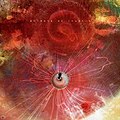













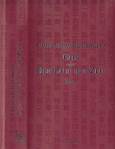
















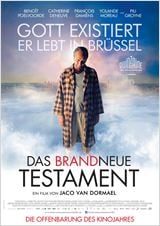











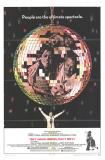






Trackback URL:
https://gebattmer.twoday.net/stories/1022416858/modTrackback